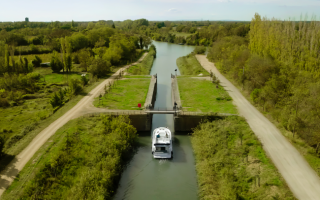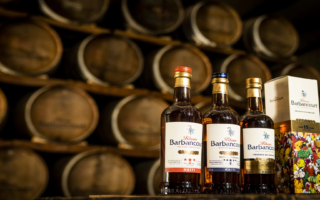Vineyard Visits: Organic wines
Once dismissed as a mere curiosity, Dominic Rippon explores the growth of organic growing methods in the vineyards of France.
When it comes to organic produce, wine has lagged behind food. In 1998, only 0.5 per cent of French vineyards were organic. However, this had risen to 3.5 per cent by 2008 and figures suggest it was 6.5 per cent in 2010. If this trend continues, 20 per cent of French vineyards could be organic by 2020.
One reason France’s organic wines have struggled to catch on is that they can be difficult to understand. Vin issu de l’agriculture biologique has been the default label, because until this year it was only the growing of the grapes, rather than the making of the wine, that could be officially organic. So up to now, in Europe at least, there has technically been no such thing as an ‘organic wine’.
Natural and organic
For most vignerons, natural winemaking is simply a responsible approach to viticulture, referred to as la lutte raisonn�e (the reasoned struggle). This requires vineyards to be treated for pests, fungus and weeds only when absolutely necessary. For others, the notion of ‘natural’ is less compromising. An hotelier once gave me an impassioned speech about un vin naturel meaning a wine “with nothing added”.
Organic viticulture forbids the use of chemical herbicides, pesticides and fungicides (with the exception of copper sprays). Fertilisers are restricted to those of non-synthetic origin. As Languedoc winemaker Virgile Joly explains: “In a wine made from organically grown grapes there is no pesticide residue, which is a huge benefit for the consumer and vineyard worker.”
The elephant in the room for organic winemaking is sulphur. In Alsace, Jean-Pierre Frick produces wines “without any additives”, into which sulphur is not allowed. The main criticism of these wines is that they do not keep well when removed from the cellar; others claim the lack of preservatives dulls their fruit aromas. Either way, making wines without sulphur is tricky, although new European regulations will mean the maximum levels of sulphur added to organic wines will be lower than for others.
Organics and terroir
Terroir encompasses a “natural environment” that includes soil, air, location and climate. Organic vines must compete with wild grasses, and being deprived of synthetic fertilisers at the soil’s surface means they dig deep roots in their search for minerals.
Alsace winemaker Jean-Michel Deiss believes the only way to make great wines is to return to France’s rural and monastic past. “Once harvested,” he said, “grapes require the gentlest treatment in the winery, but in the vineyard, the vines must suffer!” The finest, most historic vineyards of Burgundy and Alsace were planted by monks in the Middle Ages. The idea is that the vines’ struggle to find nutrients and water mirrors an ascetic monastic life, stamping the character of the terroir on the wine.
Biodynamics
M. Deiss practises the most extreme form of organic winemaking: la biodynamie, which follows a holistic, cosmic approach in the vineyard and winery. Work is done in harmony with a lunar calendar and natural treatments are applied homeopathically. To the uninitiated, biodynamic theory is at best confusing and at worst a mystical cult but it is increasingly difficult to find good winemakers who are willing to speak out against biodynamics.
The most prestigious estate in Burgundy, Domaine de la Roman�e-Conti, went organic in 1985 and now makes all its wines biodynamically. Its owner, Aubert de Villaine, admits that biodynamic farming is labour-intensive and risky, especially in a relatively cool region such as Burgundy, where the weather is unpredictable. The 2005 harvest was threatened by rot until sun and warm winds brought salvation. Conventional estates would have used fungicide – which is forbidden in biodynamic viticulture.
The future for organic wine
It is easier to grow grapes organically in warmer, drier regions, which is why Aquitaine, Provence and especially Languedoc-Roussillon lead the charge. As organic viticulture increases in France, it widens the gap with the European average, which remains at around two per cent of plantings.
M. Joly concludes: “A few years ago, farming your vines organically was a philosophy, but now it has become more technical. Some people have done it with a commercial aim, to approach specific markets, but for me the most important thing is the quality of the product. Being organic is about making the best wine possible.” Who would argue with that?
Share to: Facebook Twitter LinkedIn Email


